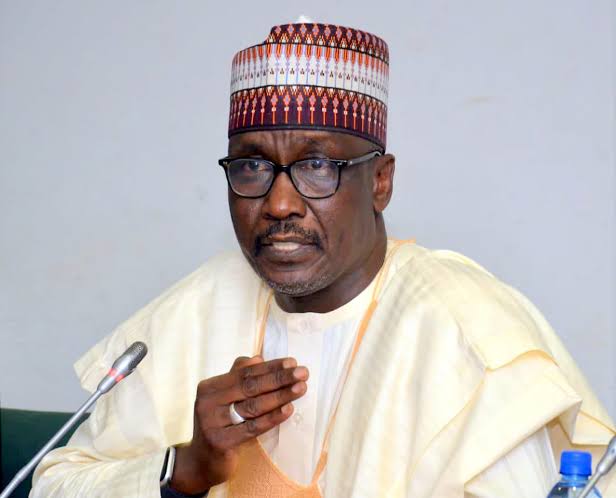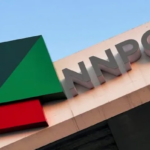The Group Chief Executive Officer (GCEO) of the Nigerian National Petroleum Corporation Limited (NNPCL) Mele Kyari, announced during the week that his organisation had stopped the importation of refined petrol. Delivering a key-note address to the Annual Conference and Exhibition of the Nigerian Association of Petroleum Explorationists (NAPE) in Lagos, Kari announced that NNPCL now sources its fuel supply from local refineries, including the newly completed Dangote Refinery Limited. Kyari’s announcement situates in the statutory role of the NNPCL to drive the entire operations in the nation’s oil and gas sector, including ensuring that fuel supply to all nooks and crannies of the country is guaranteed. Its brief also includes the coordination of crude oil supply to any such disposed refineries.
Against the backdrop of the decades old regime of importation of petrol, with the deep involvement of the NNPCL in the process, Kyari’s announcement would ordinarily infer a major achievement by his agency. While fuel importation had served for some time as the lifeline for the country before the coming of Nigeria owned refineries – the first being the first plant of Port Harcourt refinery commissioned in 1965, Warri in 1978, and Kaduna in 1980, while the second plant of Port Harcourt Refinery came in 1989, poor management and defective maintenance culture had denied the oil and gas rich Nigeria, of the full benefits in a sustainable manner, of enjoying the full complements of dividends of owning refineries of its own. Hence for a greater part of five decades during which it had established own refineries, fuel importation still haunted the country.
Eventually, the locust season for the poorly run refineries came and they shut down one after the other, to the extent that even the costly routine turnaround maintenance failed to keep them running. Then the country dropped into the vortex of full dependence on imported fuel. Along with the syndrome came the ruinous regime of sleaze in fuel subsidy transactions, whereby the country’s fiscal terrain was literally pillaged with massive fraud trailing the subsidy payments. For instance, according to Dr Wale Edun, Nigeria’s Minister of Finance and Coordinating Minister of the Economy, in recent times the country spent $600 million equivalent to N900 billion (with exchange rate of $1.00 for N1,500.00) for importing petrol only. That is why the bold initiative of President Bola Ahmed Tinubu to terminate the subsidy syndrome at the inception of his administration in 2023, enjoys significant merit even as it also launched the country into deep economic hardship.
Hence, given the rather inchoate state of affairs in the nation’s petrol sector, especially the recent twists and turns with respect to market supply and pricing regime, not a few Nigerians are trying to come to terms with Kyari’s announcement, for as far as recent memory goes the NNPCL has been the main feature in fuel importation in Nigeria. And as far as the reign of opaqueness and sleaze in the nation’s petrol sub-sector is concerned the NNPC (before and even after its restructuring as NNPCL), the corporation had remained the main feature of the syndrome.
- Governors’ overbearing influence on Nigeria: They are alphas and omegas in their states – Ngilari
- How governors can utilise their powers — Zikirullahi
Meanwhile, a more cogent angle to his announcement is the question of how much capacity currently exists in the local refineries without the mega scope of the Dangote Refinery with its 650,000 barrels a day, to justify the cessation of imports of fuel by the NNPCL. Further deepening the concerns over his announcement is the fact of the recent pricing tussle between NNPCL and Dangote Refinery Limited. Hence given the shenanigans associated with the flailing efforts of the NNPCL, it remains of interest to Nigerians which local source(s), provide(s) the NNPCL the supply frame work on which it depends for cessation of fuel imports.
According to official records, Nigeria presently has ten functional and yet to be streamed refineries namely, Edo Refinery and Petrochemical Company Ltd (Edo State), Duport Refinery (Edo State), Walter Smith Refinery (Imo State), OPAC Refinery (Delta State) and Niger Delta Refinery Ltd (Delta State). Others are the old and new Port Harcourt Refinery Company Ltd (Rivers State), Kaduna Refinery Company Ltd (Kaduna State), Warri Refinery and Petrochemical Company Ltd (Delta State) as well as Dangote Refinery Ltd (Lagos). Against the backdrop of Kyari’s claim the NNPCL must be sourcing from these local refineries in their respective production capacities.
Even at that, whatever be the merit in the NNPCL stopping the importation of petrol, a more significant question is how much of the locally sourced petrol comes from its own four refineries across the country? For as far as any value may be accorded Kyari’s chest thumping, until the operational status of the four NNPCL owned refineries be clarified in positive terms, hardly will any development endear him to Nigerians including sourcing petrol for sale from local privately owned local refineries.
Hence even as Kyari was addressing the NAPE conference, the question Nigerians, both inside the conference hall and outside expect from him is when in realistic terms the publicly owned refineries will resume operation. And until that happens, it will be limited plaudits and diminished acclaim for Kyari’s tenure at the helm of the NNPCL.

 Join Daily Trust WhatsApp Community For Quick Access To News and Happenings Around You.
Join Daily Trust WhatsApp Community For Quick Access To News and Happenings Around You.

